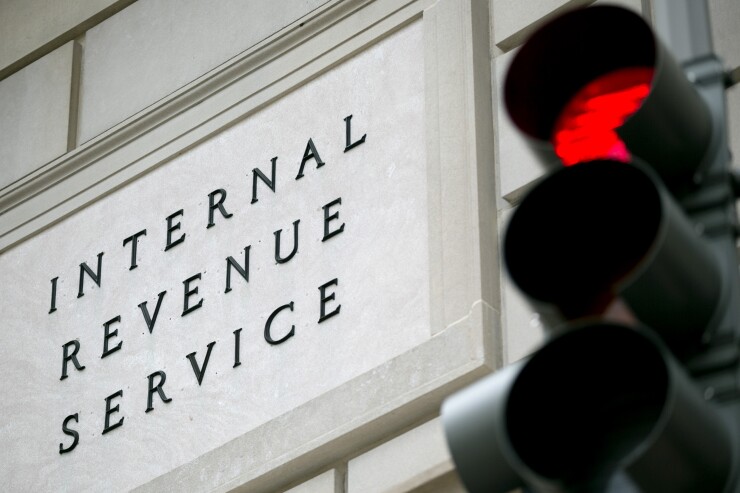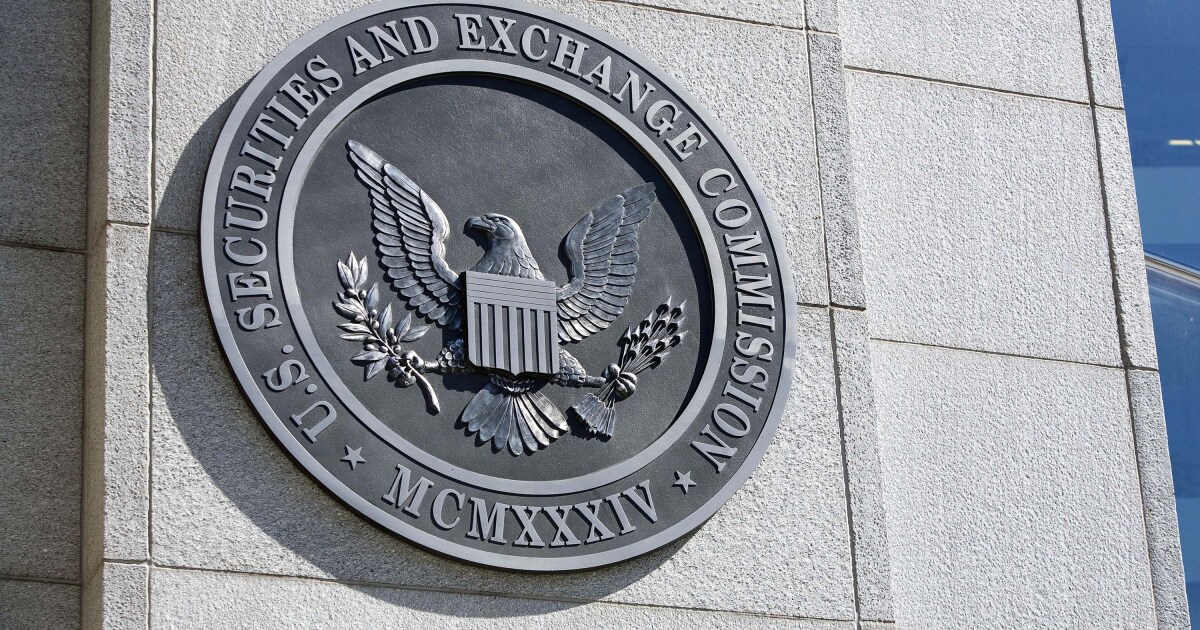The Internal Revenue Service is seeing a surge of tax scams this summer hitting taxpayers via email and text messages touting tax refunds and quick fixes to their tax problems.
Many of the email scams make promises about a non-existent third round of Economic Impact Payments. The IRS said Friday that it is getting hundreds of complaints daily in its phishing@irs.gov inbox about this scam. The emails include an embedded URL link taking unwary taxpayers to a phishing website that steals their personal information.
The IRS is also getting reports about emails encouraging people to “Claim your tax refund online,” and text messages that the person’s tax return was “banned” by the IRS. These scams are riddled with spelling errors and awkward phrasing, but they consistently try to entice people to click on a link.

Andrew Harrer/Bloomberg
“The IRS is seeing a wave of these summer scams relentlessly pounding taxpayers,” IRS Commissioner Danny Werfel said in a statement Friday. “People are being flooded with these email and text messages, but we want them to avoid getting swept up in these terrible scams. Taxpayers should be wary; remember, don’t click on links from questionable sources.”
The IRS and its Security Summit partners in the public and private sectors are in the midst of a summertime campaign warning tax pros to safeguard their cybersecurity to protect their clients.
The Economic Impact Payment scam is currently the highest-volume email scheme the IRS is seeing. Email messages are hitting inboxes with titles like: “Third Round of Economic Impact Payments Status Available.” The IRS routinely sees hundreds of taxpayers forwarding these messages each day; the agency has seen thousands of these emails reported since July 4.
Economic Impact Payment scheme
The IRS pointed out that the third round of Economic Impact Payments went out in 2021, more than two years ago. This specific scheme, which plays off this real-world tax event, has been around since then. Although the stimulus payments ended years ago, the related scheme has evolved and changed as scam artists look for new ways to adjust their message to trick people.
Taxpayers shouldn’t be fooled by these messages for many reasons, which are usually rife with spelling errors and factual inaccuracies, like this example:
“Dear Tax Payer, We hope this message finds you well. We are writing to inform you abount an important matter regarding your recent tax return filing. Our record indicate that we have received your tax return for the fiscal inconsistencies or missing information that require your attention and clarification. You will receive a tax refund of $976.00 , We will process this amount once you have submitted the document we need for the steps to claim your tax refund.
Sender : INTERNAL REVENUE SERVICE”
Like many scams, this email urges people to click on a link so they can complete their “application.” Instead, it takes the taxpayer to a website where identity thieves will try to harvest their personal information.
‘You may be eligible for the ERC’ claim
The IRS said it has seen a significant increase in false Employee Retention Credit claims. The ERC, which is sometimes also called the Employee Retention Tax Credit, or ERTC, is a pandemic-related credit for which only certain employers qualify.
Scam promoters are luring people to improperly claim the ERC with “offers” online, in social media, on the radio, or through unsolicited phone calls, emails and mailings that appear to be genuine government letters but have fake agency names and usually urge immediate action. The promoters of the scheme make false claims about their company’s legitimacy and often don’t discuss key eligibility factors, limitations and income tax implications that affect an employer’s tax return. Some promoters say they can quickly determine someone’s eligibility without details, and some charge up-front fees or a fee based on a percentage of the ERC claimed.
Anyone who improperly claims the ERC must pay it back, possibly with penalties and interest.
Eligible employers who need help claiming the ERC should work with a trusted tax professional. False ERC claims were so widespread this year that the IRS added them to its annual Dirty Dozen list of tax scams. Details about eligibility, how to properly claim the credit, and how to report promoters are available at IRS.gov/erc.
‘Claim your tax refund online’ scheme
The IRS routinely sees email and text schemes playing off tax refunds and suggesting people have somehow missed getting their tax refund.
A variation hitting inboxes in recent weeks has a blue headline proclaiming people should, “Claim your tax refund online.”
Again, there are telltale warning signs, including misspellings and urging people to click a link for help to “claim tax refund.” Here’s one example:
“We cheked an error in the calculation of your tax from the last payment, amounting to $ 927,22. In order for us to return the excess payment, you need to create a E-Refund after which the funds will be credited to your specified bank. Please click below to claim your tax refund. If we are unable to complete within 3 days, all pending will be cancelled.”
‘Help You Fix-It’ text scheme
In another scam seen in recent weeks, identity thieves send a text message from what sounds like an official account, such as “govirs-accnnt2023.” They then send a variety of messages that say there’s a problem with a person’s tax return but, not to worry, the anonymous sender of the text message can help resolve the problem if they click on a link.
However, there are many red flags on these text messages, including misspellings and factual inaccuracies:
“MSG … IRS: You federal return was ban-by the IRS. Don’t worry, we’ll help you fix it. Click this link.”
‘Delivery Service’ scam
Earlier in July, the IRS warned taxpayers to beware of a new scam mailing that tries to mislead people into believing they are owed a refund by sending them a cardboard envelope from a delivery service with a letter enclosed that includes the IRS masthead and wording that the notice is “in relation to your unclaimed refund.”
People who receive these scams by email should send the email to phishing@irs.gov. If they fall victim to the scam, they should also file a complaint with the Treasury Inspector General for Tax Administration and visit https://identitytheft.gov and https://www.irs.gov/identity-theft-central.




